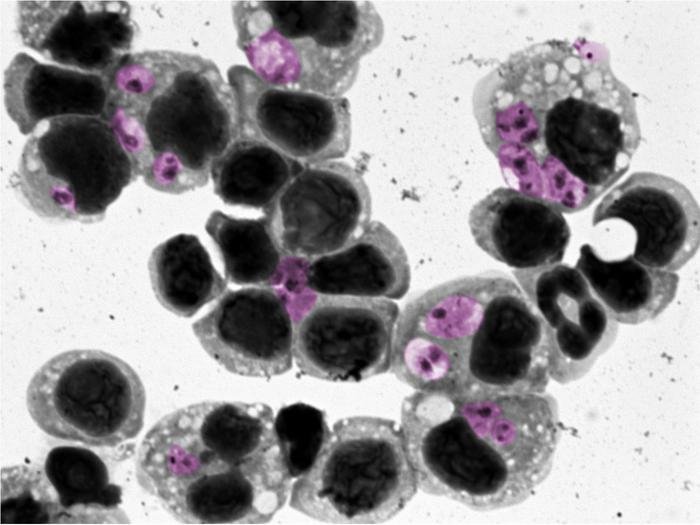In recent years, the global health landscape has been marked by major infectious disease challenges, with cutaneous leishmaniasis standing out as a significant concern. This skin infection, caused by the Leishmania parasite, has been a persistent affliction, impacting nearly a million individuals annually, particularly among vulnerable populations in tropical and subtropical regions. With its roots deeply entrenched in areas characterized by malnutrition, inadequate housing conditions, and social instability, the disease not only affects physical health but also leaves devastating scars, both visible and invisible, on individuals and communities alike.
One of the harsh realities of cutaneous leishmaniasis is the limited treatment options available. Current therapeutic modalities are marked by toxicity, ineffectiveness, and a daunting complexity that can discourage patients from adhering to prescribed regimens. The standard treatment, meglumine antimoniate, fails in 40 to 70 percent of cases. For patients grappling with this disease, the treatment experience can sometimes prove more grueling than the ailment itself. The psychological and social ramifications of ineffective treatment further compound an already challenging situation, reinforcing the need for better strategies in managing this public health issue.
In an exciting breakthrough recently published in Nature Communications, researchers have identified a groundbreaking approach that promises to revolutionize the management of cutaneous leishmaniasis. A team from the University of Maryland and the Centro Internacional de Entrenamiento e Investigaciones Médicas in Colombia has developed a novel method to forecast a patient’s response to the principal drug used to treat this condition. This predictive capability is poised to enhance healthcare providers’ capacity to tailor treatments effectively, saving patients from undergoing long, costly courses of potentially ineffective therapies.
The research highlights a significant finding: a distinct immune response pattern in patients who do not respond favorably to meglumine antimoniate treatment. This immune response, characterized by a sustained inflammatory state known as a type I interferon response, is typically a crucial element in combating viral infections. However, in the context of cutaneous leishmaniasis, its prolonged elevation appears to complicate treatment efficacy and hinder the healing process.
This discovery underscores the complexity of the immune system and its role in disease management. In essence, while the body rightly employs type I interferons to fend off pathogens, an excessive or sustained response can inadvertently inhibit recovery from leishmaniasis. By analyzing samples from patients undergoing treatment, the researchers glimpse a transformative opportunity: tracking these immune signatures could help delineate successful treatment outcomes from failures, providing a roadmap for more personalized care.
The study introduces an innovative scoring system that utilizes advanced machine learning techniques to evaluate the activity of a select group of nine genes. This predictive tool demonstrates remarkable accuracy, providing clinicians with a method to anticipate treatment success with an astounding 90% precision. Such a breakthrough is not merely a step forward; it represents a paradigm shift toward precision medicine, aligning treatment strategies with the unique biological responses of each patient.
Moreover, the researchers are not resting on their laurels; they are committed to translating these laboratory findings into practical applications that can be utilized in clinical settings. Their vision includes developing a user-friendly, portable version of their predictive technology suitable for deployment in field conditions, particularly in resource-limited settings where cutaneous leishmaniasis is prevalent. By focusing on integrating this novel approach into healthcare frameworks, the team hopes to enhance the accessibility and effectiveness of treatment options in regions where need is most acute.
As the disease begins to appear in new geographical areas, including the United States, the urgency for innovative management strategies becomes even more pressing. The research marks a significant milestone not only for the scientific community but also for affected populations who have long suffered the debilitating impacts of cutaneous leishmaniasis. The goal is clear: to foster a deeper understanding of individual responses to treatments and identify pathways for developing new therapeutics that could revolutionize patient care.
This research encapsulates a broader trend in medicine towards understanding diseases through the lens of personalized patient responses rather than solely through pathogen elimination. The shift towards prioritizing the patient’s immune mechanisms, while effectively managing the organism responsible for the disease, signifies a comprehensive approach to infectious disease treatment. This represents a collaborative effort wherein scientific exploration and patient-centric care converge to yield improved clinical outcomes.
In conclusion, the advancements in predicting treatment responses for cutaneous leishmaniasis highlight the need for continuous innovation in the field of infectious diseases. By harnessing the power of genomic insights and advanced analytics, the research team has not only illuminated a path for immediate clinical application but has also laid the groundwork for future explorations aimed at combating parasitic diseases more effectively.
As public health initiatives continue to seek out effective strategies to mitigate the burden of diseases like cutaneous leishmaniasis, this research serves as a beacon of hope. The combination of laboratory insights and real-world applications holds the key to alleviating the suffering of countless individuals plagued by this debilitating condition. With ongoing efforts and further developments, we may soon witness a transformative shift that enhances the quality of life for many affected by cutaneous leishmaniasis around the globe.
Subject of Research: Cutaneous Leishmaniasis Treatment Response
Article Title: Innate biosignature of treatment failure in human cutaneous leishmaniasis
News Publication Date: April 4, 2025
Web References: Nature Communications
References: None available
Image Credits: David Mosser
Keywords: Leishmaniasis, Drug therapy, Discovery research, Immune response, Precision medicine, Treatment failure, Type I interferons, Skin infection, Parasitic diseases, Infection management




